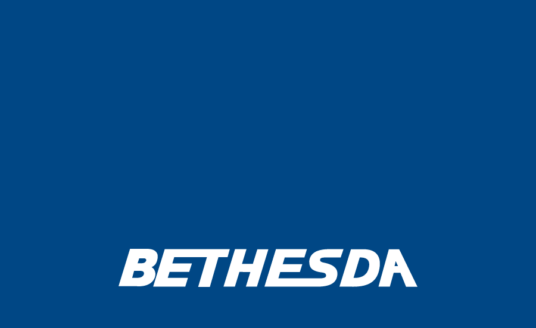Family caregivers play a vital role in the lives of their loved ones. And though their duties and responsibilities can be overwhelming, there are government resources for caregivers to use when needed.
Medicare
If your loved one is 65 or older and collecting Social Security retirement benefits, he or she is likely to be receiving Medicare Part A (hospital insurance) for free. Medicare Part B (medical insurance) premiums are automatically deducted from the monthly benefits received from the Social Security Administration (SSA).
Part D prescription drug coverage is subsidized by Medicare through payments to private insurance companies, which then fund part of the cost of the prescription drugs.
Seniors with low income and limited assets may qualify for a Medicare Savings Program which, depending on the senior’s state of residence, may help pay for Part A and/or Part B premiums as well as coinsurance, deductibles and copayments. A program called Extra Help can minimize costs associated with the Part D prescription drug plans.
Supplemental Security Income
If the senior earned his or her income through lower-paying jobs and these benefits are their source of income, they may qualify for a larger monthly benefit from the SSA called Supplemental Security Income (SSI). The program is designed to help aged, blind, and disabled people, who have little or no income, and provides cash to meet basic needs for food, clothing and shelter.
The Administration on Aging (AoA)
The AoA offers many national programs and services for seniors, including:
- Free health insurance counseling
- Legal assistance
- Elder abuse prevention
- Help with long-term care planning
The AoA also oversees a network of community-based organizations called Area Agencies on Aging, and Aging and Disability Resource Centers. Staffed by professionals, these organizations can provide guidance on eligibility requirements, as well as preparing applications and documentation for benefits.
Department of Veterans Affairs (VA)
The VA offers health care services, long-term care services, pensions, disability compensation, burial benefits, and other benefits to eligible Veterans and their qualifying family members. Though the application and approval processes can be lengthy, the best place to start is locating a Veteran’s discharge papers (also known as DD Form 214). This form is used by the VA to determine the nature of a Veteran’s discharge or separation from active duty in the armed forces, one of the fundamental eligibility requirements for most VA benefits.
The Americans with Disabilities Act National Network
The American with Disabilities Act (ADA) is a civil rights law that prohibits discrimination against disabled individuals in all aspects of public life. This includes:
- Employment
- State and federal government programs
- Transportation
- Public accommodations
- Telecommunications
- Commercial facilities
The ADA National Network provides information on the regulations.
National Institutes of Health (NIH)
The National Library of Medicine, a part of NIH, hosts Medline Plus, a comprehensive online database on health conditions, medical tests and every drug approved by the Food and Drug Administration. In addition to learning about age-related conditions and healthy living, consumers can access this database to search for information on medications, including active ingredients, uses, dosing recommendations, special precautions, side effects and interactions.
Medicaid
Medicaid is a joint federal and state program that provides health coverage to low-income Americans. Adults may qualify for Medicaid if they are disabled or age 65 or older and meet requirements. Medicaid covers various types of long-term care and home- and community-based care services. Applicants must meet stringent financial requirements to be approved for Medicaid coverage. Each state administers its own Medicaid program, so eligibility requirements may vary.
State Long-Term Care Ombudsman Programs
All states, the District of Columbia, Puerto Rico, and Guam operate an ombudsman program to help long-term care residents and their families understand their legal rights. An ombudsman is an official appointed to investigate individual complaints against organizations. The ombudsman staff and volunteers visit residents in long-term care settings, investigate and resolve complaints, advocate for quality care, and educate consumers and their families about their rights.
Benefits.gov
This site was created to provide resources for caregivers and give them access to program information from federal, state and local agencies. A Benefit Finder questionnaire will ask for detailed information about the senior — including health, disability, income, assets, military service and education. After completing the questionnaire, a list of government programs, supplements and services the senior may qualify for is provided.
BenefitsCheckUp.org
This is a non-profit site run by the National Council on Aging. Many of the same questions as the site above will be asked, but this site is developed specifically for seniors. This means there may be additional programs, details and contact information to meet the senior’s specific needs.
USA.gov
This site provides tips and information for family members of Veterans and people with disabilities. Among the offered resources for caregivers is “Caring for the Caregiver” from the National Cancer Institute, which is designed to assist family and friends caring for a person with cancer. There is also information on managing a senior’s finances from the Consumer Financial Protection Bureau, and links to additional sites from the Department of Health and Human Services to a variety of government and non-government resources for caregivers.
| Whether you choose independent living, assisted living, memory care, or skilled nursing, your experience at Bethesda will be filled with compassionate care and meaningful connections. If you are considering independent living, we encourage you to tour our communities, including Bethesda Barclay House – Clayton, Bethesda Gardens – Kirkwood, Bethesda Orchard – Webster Groves, Bethesda Terrace – South County, Village North Retirement Community – Florissant, and The Oaks at Bethesda Villas – Kirkwood/Webster. If you have any questions about our non-profit senior living communities, contact us today. |



